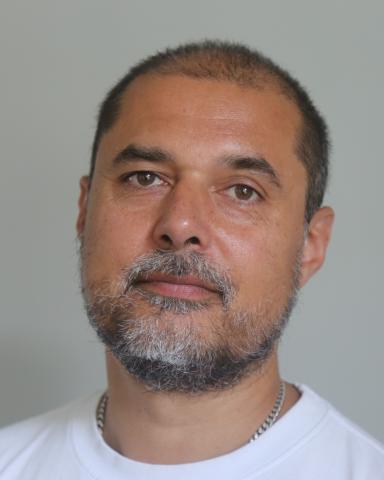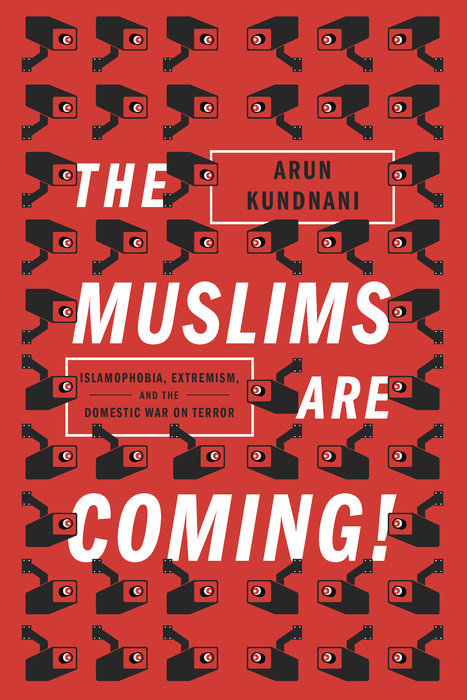
I Rise in Fire: H. Rap Brown, Jamil Al-Amin, and the Long Revolution
The project:
Charting a revolutionary life that reshapes our understanding of the War on Drugs, the War on Terror, and what happened to the radicalism of the 1960s, I Rise in Fire tells the story of Jamil Al-Amin, formerly known as H. Rap Brown, a civil rights activist who served as chairman of the Student Nonviolent Coordinating Committee and as the Black Panthers’ Minister of Justice, and who is currently incarcerated for life. Kundnani is the only person to have interviewed Al-Amin, following a legal complaint to the Federal Bureau of Prisons arguing that their denial of his interview request was a violation of his First Amendment rights as a writer.
From I Rise in Fire:
By the time of the landmark four-day National Conference on Black Power, which began in Newark on July 20, 1967, H. Rap Brown was a nationally recognized leader. At the event’s press conference, he appeared in his now distinctive look—natural hair, dark sunglasses, denim jacket, Converse Chuck Taylor sneakers—alongside writer Amiri Baraka, comedian Dick Gregory, Jesse Jackson of Martin Luther King, Jr.’s Southern Christian Leadership Conference, and Ron Karenga of the LA-based Black nationalist group US Organization. While much of the event was taken up with developing a policy program to unite Black organizations, the militant spirit which prevailed over the four days was “a tribute to black youth,” as a conference press release noted. To the younger delegates, it was Rap Brown’s speech, most of all, that connected to the underground stream of revolt running through their lives. It was time to “think Black,” he told the conference’s more than one thousand attendees. “Black people are going to be free by any means necessary.” And he presented a new demand. A month earlier, in an interview with the newspaper Muhammad Speaks, Rap had urged the formation of a Black athletes’ union to campaign for a boycott of the 1968 summer Olympics in Mexico, an idea that Dick Gregory had also floated. Now, Rap called on the Newark conference to endorse the idea, which it did, setting in train efforts over the coming months to organize Black athletes to join the boycott.
Rap began collaborating with Harry Edwards, who taught at San Jose State College and knew many of the Black sprinters set to represent the US in Mexico City. Later that year Edwards formed the Olympic Project for Human Rights to get athletes on board with the boycott campaign. “Rap understood from day one the political leverage that the Olympic Games afforded Black people in a way that no other arena of political action could,” recalls Edwards. Rap had himself been an outstanding basketball and football player, slated to play quarterback at Southern University before he was kicked out. “A lot of people think Colin Kaepernick was the first Black quarterback to become politicized and to militantly assault racism and injustice in American society,” notes Edwards. “But the first Black quarterback to do that, that I knew, was H. Rap Brown.”
The grant jury: Arun Kundnani’s tireless research has established that there is no one better suited to chronicle the life and legacy of Jamil Al-Amin. This rigorous account of a pivotal but little-studied civil rights leader not only sheds light on his achievements and his wrongful imprisonment, but stitches new and profound connections between the backlash against the Civil Rights movement of the 1960s and anti-Muslim hysteria after 9/11. It is a gripping, necessary addition to literature on revolutionary politics. Fired by political clarity, this is a significant work.
Arun Kundnani is the author of various books on race, radicalism, Islam, and surveillance, including The Muslims are Coming! (Verso Books), which reported on the experiences of Muslims in the US during the War on Terror. Essays and articles by Kundnani have appeared in The Washington Post, the Guardian, The Nation, HuffPost, and Dissent. Translations have been published in Arabic, Bengali, German, Italian, and Japanese. Born in London, Kundnani was educated at Cambridge University, received a PhD from London Metropolitan University, and now lives in Philadelphia.
Selected Works
